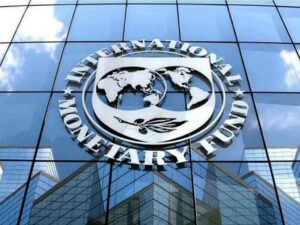
Oil theft reduces to 5,000b/d — NUPRC boss
The Nigerian Upstream Petroleum Regulatory Commission (NUPRC) has announced a significant reduction in crude oil theft, which has now decreased to 5,000 barrels per day (bopd) due to both kinetic and non-kinetic interventions.
The Commission’s Chief Executive, Engr Gbenga Komolafe, highlighted these reforms and achievements in Nigeria’s oil and gas sector during his presentation at the Renewed Hope Global Town Hall Conference in Abuja.
The details were provided in a press statement issued by Mrs. Olaide Shonola, Head of Public Affairs and Corporate Communication.
Komolafe explained that, thanks to the intervention measures, crude oil production, which had dropped to 1.1 million bopd in 2022, has now increased to 1.7 million bopd.
The statement read: “During the presentation, he also acknowledged challenges, including oil theft, which led to a drastic drop in production to 1.1 million bopd in 2022. However, he noted that through kinetic and non-kinetic interventions, oil theft has significantly reduced to 5,000 bopd, leading to a steady increase in production to 1.7 million bopd.”
The presentation also outlined the NUPRC’s target to increase crude oil production to 2.6 million bopd by December 2026, with an additional 1 million bopd expected to come online.
Looking ahead, Komolafe stated: “The government aims to increase production by 1 million bopd by December 2026 under the Project 1 MMBOPD initiative, which will leverage collaboration among operators, service providers, financiers, and host communities.”
Komolafe emphasised the need for a paradigm shift to position Nigeria as a leader in both energy security and economic growth.
On Nigeria’s oil and gas potential and its global standing, he noted that Africa is home to five of the world’s top oil-producing countries, with Nigeria ranking as the continent’s second-largest holder of oil reserves and the largest holder of gas reserves. Nigeria’s oil reserves are estimated at 37.5 billion barrels, while its gas reserves stand at 209 trillion cubic feet (TCF).
He added that oil production in Nigeria now averages 1.75 million barrels per day (bopd), while gas production is at a rate of 7 billion standard cubic feet per day (SCFD).
Regarding regulatory reforms and achievements, Komolafe stated that since the enactment of the Petroleum Industry Act (PIA) in 2021, the NUPRC has driven numerous initiatives aimed at enhancing regulatory effectiveness and attracting investments.
The Commission unveiled its 10-year Regulatory and Corporate Strategic Plan (2023–2033) in May 2023, followed by the publication of a Regulatory Action Plan for 2024, which outlines key industry reforms.
These reforms, Komolafe explained, focus on increasing oil and gas reserves and production, improving hydrocarbon accounting transparency, achieving cost efficiency and decarbonisation in upstream operations, ensuring stability in host communities, and reducing the carbon footprint of oil and gas activities.
On the 2024 Licensing Round and Investment Drive, Komolafe highlighted that the NUPRC has launched its 2024 Licensing Round, offering 24 oil and gas assets to investors. To attract global participation, the Commission held roadshows in Houston, Miami, London, and Paris, showcasing Nigeria’s energy potential.
In discussing the Nigeria Gas Flare Commercialisation Programme (NGFCP), the Chief Executive assured that the project is central to the country’s energy transition strategy. The programme aims to eliminate routine gas flaring, reduce methane emissions, and promote carbon capture technologies. Additionally, the Carbon Credits Earning Framework seeks to monetise decarbonisation efforts while encouraging sustainable energy practices.
Addressing revenue growth, financial performance, and industry challenges, Komolafe noted that the NUPRC has consistently exceeded its revenue targets. In 2024, the Commission surpassed its budgeted revenue collection by 84%, marking a strong financial performance for Nigeria’s upstream sector.
To ensure fiscal transparency, the NUPRC has implemented regulations on hydrocarbon metering, fiscal oil price determination, and cargo declaration systems to combat revenue leakages and crude oil theft.
On Host Community Engagement and Regulatory Transparency, the Commission has established 137 Host Community Development Trusts (HCDTs) to encourage local participation and stability in oil-producing regions. Furthermore, the Alternative Dispute Resolution Centre (ADRC) has been created to resolve conflicts efficiently, reducing disruptions to oil and gas operations.
In light of these developments, Komolafe emphasised that Nigeria is more prepared for business than ever before, citing the government’s commitment to regulatory certainty, investment-friendly policies, and global competitiveness.
With a stable political environment, a growing gas economy, and a clear roadmap for energy transition, Nigeria is positioning itself as a prime destination for energy investments in Africa.
He reaffirmed NUPRC’s commitment to working with global investors, financiers, and energy stakeholders to unlock the nation’s full hydrocarbon potential while driving sustainable development.




